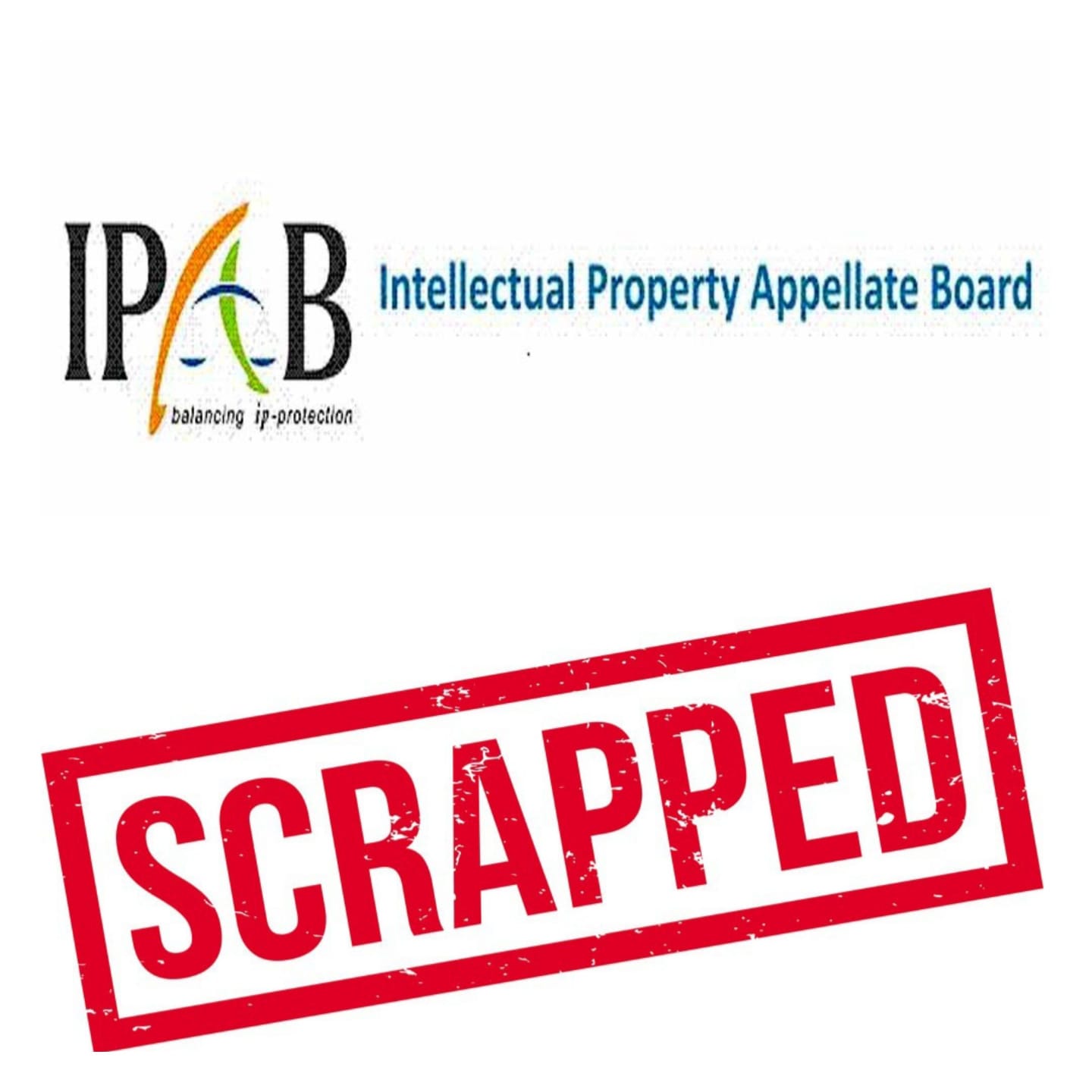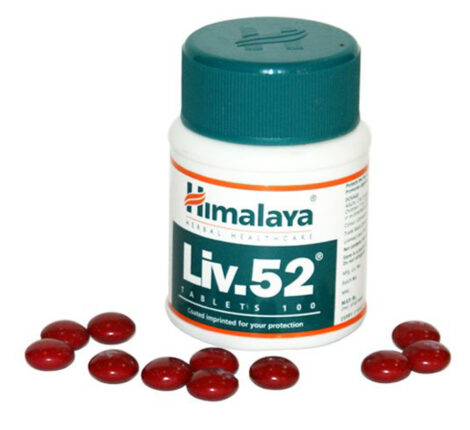THE SCRAPPING DOWN OF INTELLECTUAL PROPERTY APPEALLTE BOARD(IPAB)
An ordinance titled Tribunals Reforms (Rationalization and Conditions of Service) Ordinance, 2021 was published in the Official Gazette, bearing the Gazette ID: CG-DL-E-04042021-226364) on 4th April, 2021 which abolished the tribunals established under the various law including the Intellectual Property Appellate Board (IPAB). This has been done as an attempt to ensure a smoother functioning of tribunals and to avoid delays in the justice delivery mechanism. A bill containing the same outcome has already been passed in the Lok Sabha in February and is pending in the Rajya Sabha. The ordinance has been promulgated despite the fact that the bill is to be sent to a parliamentary standing committee for a review. After rendering the Intellectual Property Appellate Board (IPAB) defunct, the functions and powers of the tribunal have been transferred to the High Courts and Commercial Courts as per the cases.
The IPAB was established via the Trade Marks Act, 1999, and was subsequently given impetus under the Copyright Act, 1957, Patents Act, 1970, and the Geographical Indications of Goods (Registration and Protection) Act, 1999 to exercise original and appellate jurisdictions in matters under with. Subsequent to the ordinance, all the pending cases post 4th April 2021 are to be transferred to the High Courts, which will hear appeals out of decisions of Registrar of Geographical Indications, the Registrar of Trademarks and the Controller of Patents. While in cases of Copyrights Act, the cases have been transferred to Commercial Courts, established under section 4, of the Commercial Courts Act, 2015.
The ordinance is a part of series of steps taken by the government in order to streamline and rationalise tribunals, a process that began in 2015. In the year 2017, via the Finance Act, 2017, seven tribunals were abolished and restructured depending on the similarity of functions. However, the Act faced legal challenges as it was passed as a Money Bill and violated Articles 107, 110 and 117 of the Constitution of India.
In order to compensate the outgoing tribunal members, transitional provisions have been put in place apart from the amendments in the respective statutes. Further, the officers that were on deputation have been reversed to their respective parent Ministries or Departments. Any such proceedings that are pending before the tribunal are to be transferred to the respective High Courts where they would lie as per the ordinance and the court may proceed to dispose off the same from the stage where it was before taking place of the transfer, or from any stage prior or start afresh altogether as the court may deem fit. Further, any such balance of funds received by the tribunal that have not been spent are to be transferred to the Central Government.
The ordinance has changed the individual Intellectual Property statutes in following manners,
Trade Marks Act, 1999
- Sections pertaining to IPAB have been scrapped, which include,
- Section 83– dealt with setting up of an IPAB to hear appeals against the decisions of Trademarks Registrar.
- Section 84– composition of Tribunals
- Section 85– Qualification
- Section 86– Term of Office
- Section 88– Salaries
- Section 89– Resignation and Removal
- Section 92– Procedure and Powers
- Section 95– Condition on interim order
- All the functions and powers of the board have been transferred to the High Court, by lifting of the bar on jurisdiction of the court caused via deletion of Section 93 of the Act.
- The definitions of Appellate Board, Bench, Chairman, Judicial Member, Member, tribunal, and Vice-Chairman have been omitted from Section 2(1) of the Act.
- Substitution the terms “Tribunal” with “the Registrar or the High Court” and “Appellate Board” with “High Court” from each and every place in the Act.
Copyrights Act, 1957
- Provisions related to IPAB have been erased, which included the definition under Section 2(aa) of the Copyright Act, 1957.
- IPAB has been replaced with High Courts and Commercial Courts as the case may be.
- Definition of commercial courts has been added under Section 2(fa) of the Act, giving the same meaning as that given under Section 4 of the Commercial Courts Act, 2015.
- The term “Appellate Board” has been replaced with “Commercial Courts”.
- The power earlier given to the Appellate Board to hear appeals against the orders of the Registrar of Copyrights has now been vested with a Single Judge of the High Court.
Protection of Plant Varieties and Farmers’ Rights Act, 2001
- Plant Varieties Protection Appellate Tribunal formed under Section 54 of the Act has been dismantled.
- Provisions relating to the erstwhile tribunal have now been scrapped off which include,
- Section 54 – establishment of the Plant Varieties Protection Appellate Tribunal.
- Section 55 – Composition of the Tribunal
- In all places in the Act, the term “Tribunal” has been replaced with “High Court”, as a result, all the appeals from decisions of the Registrar of Plant Varieties Registry and Protection of Plant Varieties and Farmers’ Rights Authority are to be heard by the respective High Courts.
- All pending cases are to be transferred at High Courts.
Patents Act, 1970
- Section 116 of the Patents Act, 1970 which provided for formation of Appellate Board tasked with hearing appeals from the order of the Controller General of Patents, Designs and Trade Marks has been scrapped off.
- Provisions relating to the Appellate Board have been abolished, which include,
- Section 116 – establishment of the Appellate Board
- Section 117 – composition of the Board
- Sections 117A, 117B and 117D – Procedure and Powers
- Powers and functions of the appellate board have been transferred to the High Court, via deletion of Section 117C of the Act.
- Earlier, both the Appellate Board and High Courts functioned simultaneously, however, now only latter will be functional. The term “Appellate Board” has been replaced with “High Court” from all the places in the Act.
Cinematograph Act, 1952
- Section 2(h), which provided for the Appellate Tribunal has been scrapped off from the Act.
- The term ‘Appellate Tribunal’ under Section 7C of the Act has been replaced with ‘High Court’.
- Earlier, Appellate Tribunal was empowered to hear appeals from the decisions of the Censor Board, this power is transferred to High Court consequent to the ordinance.
The move of scrapping down of the Intellectual Property Appellate Board (IPAB) has been considered as a notable change and has been welcomed by many. The purpose behind establishment of IPAB was efficient and timely disposal of cases, but rarely was this goal met. When it came to performance, there were perplexing delays caused on various occasions arising out of inadequate funding and inefficiencies in appointments. On one such occasion, there were delays in appointment of chairmen. In another incident, between the years 2016-2019, no patent matters were heard because there were no technical members, and similarly with copyright cases between the years 2003-2019 due to lack of technical members.
Another issue with the IPAB was that matter were heard only in either Delhi or Chennai, now with the cases being transferred to High Courts, there will be improved accessibility for the litigants and a speedy disposal of matters. Earlier, the litigants residing outside these two cities has to face hardships in bearing costs in travel which can now be greatly reduced with matter being heard in High Courts in each state.
With so many inefficiencies and delays in the functioning of the IPAB it was about time that a reform was put in place. Even after the inadequacies being pointed out by the courts on several occasions, little efforts were taken to do anything about it. The scrapping off of the body appears to be a reasonable step in dealing with and doing away with the inexplicable hardships arising out of its poor functioning. However, there are still doubts arising as to whether this will be helpful in speedy disposal of cases given the already large numbers of backlog of cases lying in High Courts. Further, while the IPAB consisted of technical members, the same is not true for High Court and while dealing with matters the court may require assistance of technical experts to understand the issues adequately to provide proper delivery of justice. Further, the proceedings at the IPAB were less complicated for the layman as it consisted of filings and relevant forms, making the process easier for the applicants, and rarely did the require legal assistance, however, in High Courts, there arises a necessity to appoint lawyers in order to understand and go through the intricacies of legal procedures. It has been argued that while in light to issues caused due to poor functioning some measures were required, the same could have been dealt with by the government in the erstwhile framework itself, and the sudden move will only burden the already existing hardships. While the ordinance does bring in the changes which were necessary, the same has been done in a majorly drastic and somewhat unnecessary manner.




